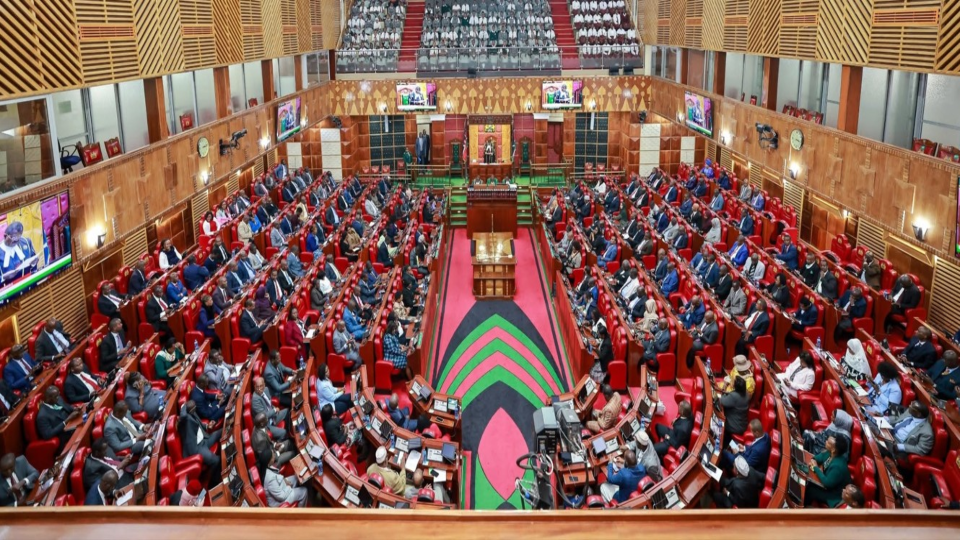Proposed Bill Sets Retirement Age of 60 for Kenya’s Top Police Officials
A new legislative proposal introduced in Kenya’s Parliament seeks to establish a mandatory retirement age of 60 for the country’s top police officials, including the Inspector-General (IG) and Deputy Inspector-General (DIG) of the National Police Service. The bill, which aims to amend the National Police Service Act, Cap 84, introduces significant changes to the appointment and tenure of senior police leadership, signaling a potential shift in the structure and governance of Kenya’s law enforcement.
The primary objective of the bill is to standardize the retirement age for the Inspector-General and Deputy Inspector-General, aligning it with the mandatory retirement age already in place for other public servants in Kenya. Currently, the National Police Service Act does not specify a retirement age for these top positions, leading to inconsistencies in tenure and succession planning. By setting the retirement age at 60, the bill aims to ensure regular leadership transitions, promote career progression within the police service, and address concerns about prolonged tenures that may hinder institutional renewal.
Under the proposed legislation, individuals nominated and appointed to the roles of Inspector-General and Deputy Inspector-General would be required to retire upon reaching the age of 60. This provision is intended to bring clarity and predictability to the leadership structure of the National Police Service, which has faced challenges related to officer morale and stagnation in recent years. The bill also emphasizes merit-based promotions and aims to address gaps in the command structure caused by natural attrition and limited recruitment.
The introduction of the bill comes at a time when the National Police Service is undergoing broader reforms to improve its efficiency and public perception. Recent initiatives, such as salary increases for police officers and efforts to modernize policing techniques, reflect the government’s commitment to strengthening law enforcement. The proposed retirement age cap is seen as a complementary measure to ensure that leadership remains dynamic and responsive to contemporary challenges in crime prevention and public safety.
Supporters of the bill argue that a mandatory retirement age will encourage the infusion of fresh perspectives into the police service’s leadership. By setting a clear exit point, the legislation could create opportunities for younger, qualified officers to ascend to senior roles, fostering a culture of innovation and adaptability. Additionally, the bill is expected to streamline succession planning, reducing uncertainties around leadership transitions that have occasionally caused friction within the service.
However, the proposal has sparked debate among stakeholders. Some critics question whether a fixed retirement age could lead to the premature loss of experienced leaders, particularly in a field where institutional knowledge and expertise are critical. Others have raised concerns about the potential impact on officers nearing the proposed retirement age, especially those who have served in senior roles for extended periods. The bill’s proponents counter that the age cap aligns with global best practices in public service and will ultimately strengthen the National Police Service by ensuring regular turnover at the highest levels.
The bill also includes provisions to ensure that the retirement process is handled transparently and fairly. For instance, it mandates that the National Police Service Commission, in collaboration with the acting Inspector-General, review the files of officers approaching retirement age to assess their eligibility for promotions or other roles before they exit the service. This measure aims to address longstanding complaints about stagnation, particularly among officers aged 53 to 59, who have often faced limited career advancement opportunities due to structural bottlenecks.
The proposed legislation arrives in the context of other ongoing reforms within Kenya’s public sector. For example, recent efforts to address pension delays and improve retirement benefits for public servants, including police officers, have been prioritized by the government. The Commission on Administrative Justice has directed the Pensions Department to clear all pending claims within 60 days, highlighting the need for efficient systems to support retirees. The police retirement bill complements these efforts by providing a clear framework for senior officers’ exit from service, potentially easing the transition to retirement.
As the bill moves through Parliament, it is expected to undergo rigorous scrutiny during public participation and committee stages. Lawmakers will likely consider feedback from police officers, civil society organizations, and the public to refine its provisions. The outcome of these discussions could shape the future of Kenya’s police leadership and influence broader public sector reforms aimed at improving governance and accountability.
The introduction of the retirement age cap reflects a broader push to modernize Kenya’s National Police Service. By addressing issues of tenure, succession, and career progression, the bill seeks to create a more dynamic and effective law enforcement agency. As Kenya grapples with evolving security challenges, including rising crime rates and public demands for accountability, the proposed changes could play a pivotal role in shaping the future of policing in the country.
The bill’s passage is not guaranteed, and its success will depend on the ability of lawmakers to balance the need for reform with the concerns of stakeholders. For now, the proposal represents a bold step toward aligning the National Police Service with modern governance standards, ensuring that its leadership remains agile and capable of meeting the demands of a rapidly changing society.


